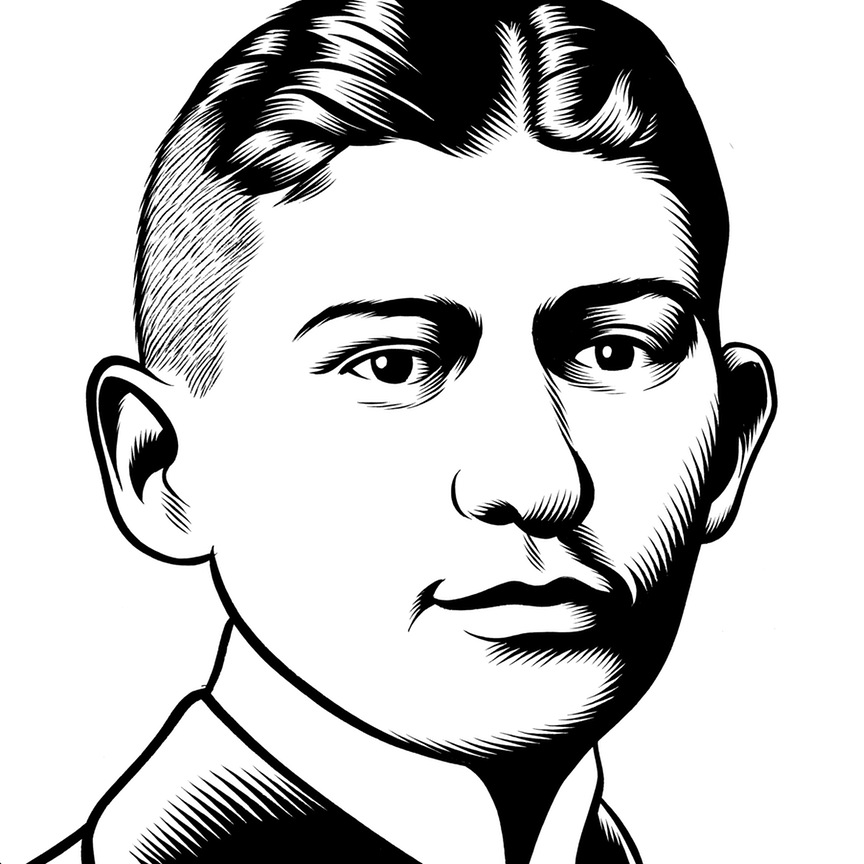
JONATHAN LETHEM: What were you doing today before I appeared in your house?
PAUL AUSTER: The usual. I got up in the morning. I read the paper. I drank a pot of tea. And then I went over to the little apartment I have in the neighborhood and worked for about six hours. After that, I had to do some business. My mother died two years ago, and there was one last thing to take care of concerning her estate—a kind of insurance bond I had to sign off on. So, I went to a notary public to have the papers stamped, then mailed them to the lawyer. I came back home. I read my daughter’s final report card. And then I went upstairs and paid a lot of bills. A typical day, I suppose. A mix of working on the book and dealing with a lot of boring, practical stuff.
JL: For me, five or six hours of writing is plenty. That’s a lot. So, if I get that many hours the other stuff feels satisfying. The other stuff feels like a kind of grace. But if I have to do that stuff when I haven’t written—
PA: Oh, that’s terrible.
JL: That’s a terrible thing.
PA: I’ve found that writing novels is an all-absorbing experience—both physical and mental—and I have to do it every day in order to keep the rhythm, to keep myself focused on what I’m doing. Even Sunday, if possible. If there’s no family thing happening that day, I’ll at least work in the morning. Whenever I travel, I get thrown off completely. If I’m gone for two weeks, it takes me a good week to get back into the rhythm of what I was doing before.
JL: I like the word “physical.” I have the same fetish for continuity. I don’t really ask of myself a given word or page count or number of hours. To work every day, that’s my only fetish. And there is a physical quality to it when a novel is thriving. It has an athletic component. You’re keeping a streak going.
PA: Writing is physical for me. I always have the sense that the words are coming out of my body, not just my mind. I write in longhand, and the pen is scratching the words onto the page. I can even hear the words being written. So much of the effort that goes into writing prose for me is about making sentences that capture the music that I’m hearing in my head. It takes a lot of work, writing, writing, and rewriting to get the music exactly the way you want it to be. That music is a physical force. Not only do you write books physically, but you read books physically as well. There’s something about the rhythms of language that correspond to the rhythms of our own bodies. An attentive reader is finding meanings in the book that can’t be articulated, finding them in his or her body. I think this is what so many people don’t understand about fiction. Poetry is supposed to be musical. But people don’t understand prose. They’re so used to reading journalism—clunky, functional sentences that convey factual information—facts, more than just the surfaces of things.
JL: This relates to the acute discomfort of publicity, so much of which consists of requests to paraphrase the work. Which inevitably results in something unmusical. It’s as if you’ve taken the body away, then drawn its outline and described its contents.
PA: I don’t know why the world has changed so much that writers are now expected to appear in public and talk about their work. It’s something I find very difficult. And yet, one does have some sense of responsibility towards one’s publishers, to the people trying to sell the book.
I’ve tried to pick my spots. I don’t do it that often. But every once in a while I’ll come out and do it as an act of good faith. Then I hope I’ll be left alone again for a while. For example, with the last novel I published, Oracle Night, I just simply refused to go on book tours. I just didn’t have the stamina for it.
JL: Kazuo Ishiguro has a funny way of talking about it as if it’s a giant, consensual mistake all authors made together, by agreeing to this. And then suggesting we need to end it together. It’s like a version of Prisoner’s Dilemma. If one of us tours, we all have to tour. If everyone refuses…
PA: He’s speaking from deep experience. He did something that no one else I know ever did. He was on book tour for about two years. He went everywhere, to every country in the world where his book was published. In the end, it probably nearly killed him.
JL: Did you read The Unconsoled?
PA: I’ve wanted to.
JL: It’s one of my favorite novels by a living writer. An epic Kafkaesque account of a pianist’s arrival in a city to give a recital which never seems to happen. One possible description of it is as the longest and bitterest complaint of a book-touring author ever written.
PA: There’s a great entry in Kafka’s diaries in which he describes an imaginary writer in the process of giving a public reading. So-and-so is up there on stage and people are getting restless and bored. “Just one more story,” he says, “just one more…” People start getting up and leaving. The doors keep slamming shut, and he goes on begging “just one more, one more,” until everyone is gone and he’s left alone at the podium, reading to an empty room.
(An excerpt from Jonathan Lethem’s conversation with Paul Auster, February 2005).




